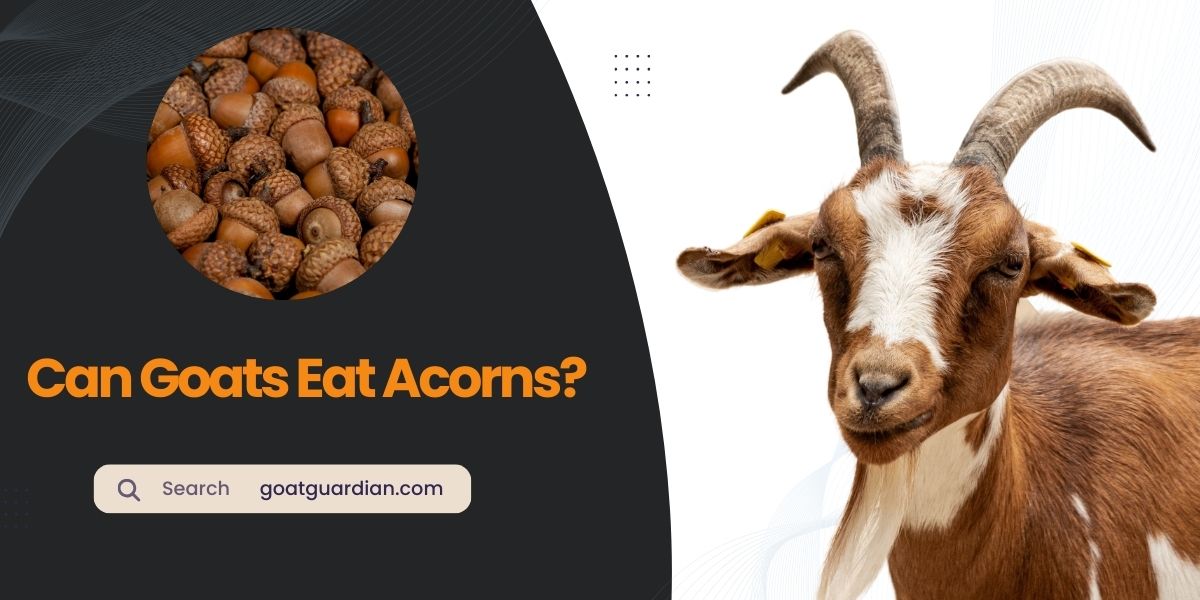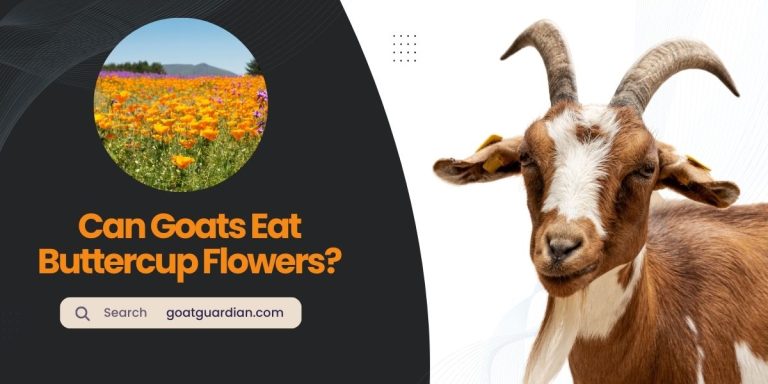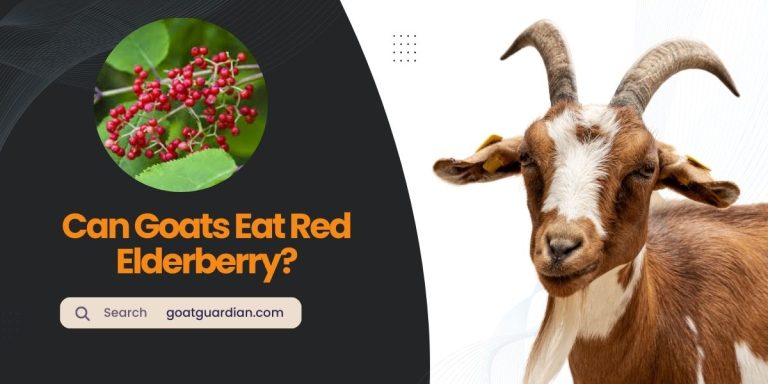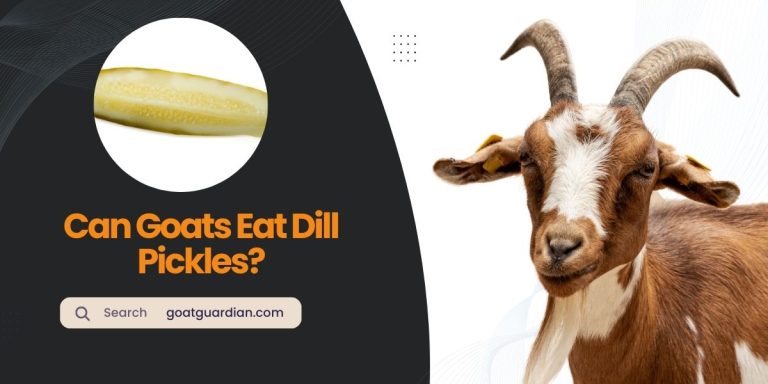Can Goats Eat Acorns? Toxic or Safe?
Goats can eat acorns but consuming a large amount at once can cause problems. Acorns, leaves, and buds of some oaks can be toxic to certain livestock such as cattle, goats, and sheep.
Grazing in areas with dense oak cover should be avoided. However, goats are less susceptible to the toxic compounds in oak compared to cattle and sheep. It’s important to take precautions and monitor their consumption to prevent any health issues.
Introduction To Goats And Acorns
| Overview of goats’ diet |
| Goats can graze near oak trees and consume acorns without problems most of the time. However, it is important to understand the importance of what goats can and cannot eat. Acorns, along with oak buds and very young leaves, can be toxic when eaten in excess. Cattle, goats, and sheep can all experience fatal poisoning from ingesting too many acorns or too much oak browse. Livestock should not be allowed to graze in areas with dense oak cover. Additionally, goats are voracious eaters and may consume the bark off trees, causing harm to the tree and potential damage to their digestive system. It is crucial to prevent goats from eating tree bark to ensure the transfer of vital nutrients to the tree. Overall, it is essential to be cautious when it comes to goats’ access to acorns and oak trees in order to avoid any potential health issues. |
Understanding Acorns And Their Toxicity
| Acorns can be toxic to some domestic livestock if ingested in large amounts. Cattle, goats, and sheep are particularly susceptible to the toxic compounds found in acorns, known as “Gallo tannins.” These compounds can be tough on the kidneys in all ruminants, making them sick if they consume too many acorns. However, goats can generally graze near oak trees and consume acorns without issues most of the time. Problems usually arise when animals eat a large quantity of acorns at once. It is important to take similar precautions as with cattle grazing near oak trees to prevent acorn poisoning in goats. While acorns can be a food source for goats, it’s important to note that goats are voracious eaters and may also consume tree bark, including oak bark. This can be harmful as it prevents trees from transferring vital nutrients, and it can cause damage to the goat’s digestive system. To prevent goats from eating tree bark, measures such as providing adequate forage, keeping them well-fed, and providing enrichments like toys or scratching posts can help redirect their chewing behavior. Overall, while goats can generally eat acorns without problems, it’s essential to monitor their consumption and ensure they have a balanced diet to maintain their health. |
Can Goats Safely Consume Acorns?
Factors that determine the safety of goats consuming acorns:
Goats can graze near oak trees and consume acorns without problems most of the time. The problems generally occur when animals eat a large amount of acorns at one time. Take similar precautions as with cattle grazing near oak trees.
Acorns are especially a problem during dry summers when forages are scarce or in very wet falls when heavy rains dislodge them. Calves are the most severely affected by acorn poisoning, but other livestock animals like sheep, horses, and cattle can also be affected.
It’s important to note that acorns, along with oak buds and very young leaves, can be poisonous when eaten in excess. Cattle and sheep are more susceptible than goats, but the toxic compounds in oak, called “Gallo tannins,” are tough on the kidneys in all ruminants. Therefore, while goats can consume acorns, it is essential to monitor their intake to avoid any health issues.
Tips For Feeding Goats Acorns
Feeding acorns to goats can provide them with a nutritious and varied diet. However, it’s essential to follow certain guidelines to ensure the health and safety of your goats:
- Quantity and frequency guidelines for feeding acorns:
- Start by introducing small amounts of acorns gradually.
- Monitor your goats’ reaction to acorns and adjust the quantity accordingly.
- It’s recommended to feed acorns as a supplement, not as the main source of food.
- Avoid feeding moldy or spoiled acorns to goats as they can cause digestive issues.
- Consult with a veterinarian or experienced goat owner for specific feeding recommendations.
By following these guidelines, you can safely incorporate acorns into your goats’ diet, providing them with additional nutrients and variety.
Potential Risks And Considerations
| Acorns drop off oak trees in early fall, and cattle often like to eat them. But acorns, along with oak buds and very young leaves, can be poisonous when eaten in excess. Cattle and sheep are more susceptible than goats, but the toxic compounds in oak, called “gallotannins,” are tough on the kidneys in all ruminants. Livestock should not be permitted to graze in areas with dense oak cover. Goats can graze near oak trees and consume acorns without problems most of the time. The problems generally occur when animals eat a large amount of acorns at one time. |
|
Discussing potential risks and side effects of goats eating acorns |
| It is important to consider the potential risks and side effects of goats eating acorns. While goats can typically graze near oak trees and consume acorns without problems most of the time, issues can arise when they consume a large amount of acorns at once. Acorns, along with oak buds and very young leaves, contain toxic compounds called “gallotannins” that can be tough on the kidneys of all ruminants. Although goats are generally less susceptible to acorn toxicity compared to cattle and sheep, it is still important to monitor their consumption and ensure they do not overindulge. Moderation and observation are key in allowing goats to safely consume acorns without experiencing any negative effects. |
Preventing Goats From Overeating Acorns
table {<br /> font-family: arial, sans-serif;<br /> border-collapse: collapse;<br /> width: 100%;<br /> }</p> <p>td, th {<br /> text-align: left;<br /> padding: 8px;<br /> }</p> <p>tr:nth-child(even) {<br /> background-color: #f2f2f2;<br /> }<br /> Goats can graze near oak trees and consume acorns without problems most of the time. However, it is important to prevent goats from overeating acorns to avoid potential health issues. Here are some strategies for limiting goats’ access to acorns:
| Strategies |
|---|
| 1. Utilize rotational grazing to control access to oak trees and acorns. |
| 2. Fence off areas with dense oak cover to prevent grazing. |
| 3. Provide alternative forage and feed options to ensure goats are well-nourished. |
| 4. Regularly monitor goat behavior and health to identify any signs of acorn overconsumption. |
| 5. Consult with a veterinarian for guidance on managing goat nutrition and preventing acorn toxicity. |
By creating a safe and controlled grazing environment for goats, you can prevent them from overeating acorns and minimize the risk of health issues associated with acorn consumption. Remember to monitor and adapt these strategies based on your specific goat herd’s needs and the availability of alternative forage options.
Alternatives To Acorns For Goats’ Diet
While goats can graze near oak trees and consume acorns without problems most of the time, it is important to consider alternatives to provide a well-balanced diet for goats. Consuming excessive amounts of acorns can lead to issues. Here are some alternative food sources to consider:
- Hay: Provide good quality hay as a staple part of their diet. It should be a mix of legumes and grasses.
- Grasses and weeds: Allow goats to graze on grasses and weeds in pastures. Ensure that these are safe and free from toxins.
- Forage crops: Plant forage crops such as alfalfa, clover, and ryegrass for goats to browse on.
- Fruits and vegetables: Offer a variety of fruits and vegetables in moderation, including apples, carrots, and kale.
- Commercial goat feed: Supplement their diet with commercial goat feed that is specifically formulated for their nutritional needs.
By diversifying their diet and providing a variety of food sources, you can ensure that goats receive the necessary nutrients without relying solely on acorns.
Frequently Asked Questions For Can Goats Eat Acorns
Are Oak Trees Toxic To Goats?
Acorns from oak trees can be toxic to goats, as well as other livestock such as cattle and sheep. Consuming too many acorns or oak browse can lead to fatal poisoning. It is advisable to prevent livestock from grazing in areas with dense oak cover.
Goats can eat acorns in small amounts without problems, but precautions should be taken to avoid excessive consumption.
What Animals Should Not Eat Acorns?
Some animals, such as cattle, goats, and sheep, should not eat acorns as they can be toxic and cause fatal poisoning. Livestock should not be allowed to graze in areas with dense oak cover. Goats, however, can graze near oak trees and consume acorns without problems most of the time.
It is important to take precautions and prevent animals from eating a large amount of acorns at once.
What Livestock Can Eat Acorns?
Acorns can be poisonous to cattle, goats, and sheep if eaten in excess. Goats are less susceptible to the toxins in acorns compared to other livestock. It is important to prevent livestock from grazing in areas with dense oak cover to avoid poisoning.
Will Goats Eat Oak Tree Bark?
Yes, goats will eat oak tree bark, but it can be harmful to them as it prevents the transfer of vital nutrients and can damage their digestive system.
Conclusion
While goats can consume acorns without issues most of the time, caution should be exercised to prevent overconsumption. Acorns, along with oak buds and young leaves, contain toxic compounds that can harm the kidneys of ruminants. Cattle and sheep are more susceptible to poisoning than goats.
Grazing in areas with dense oak cover should be avoided to protect livestock. So, while goats may enjoy eating acorns, moderation is key to their health and well-being.






